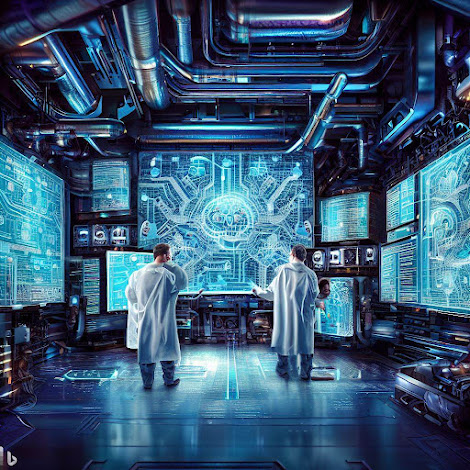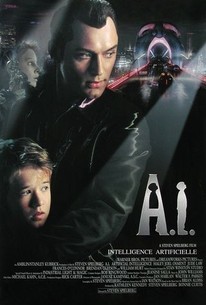Unleashing the Power: Exploring the Future of Artificial Intelligence
Introduction:
Artificial Intelligence (AI) has emerged as one of the most transformative technologies of our time, revolutionizing industries and reshaping the way we live, work, and interact. As we delve into the future, the potential of AI seems limitless, promising even greater advancements that will redefine our world. In this blog, we will embark on a journey to explore the future of artificial intelligence, examining its potential impact on various sectors and the challenges and opportunities that lie ahead.
AI and Automation:
AI is poised to bring about a new era of automation, where machines will possess increasingly advanced cognitive abilities. From self-driving cars to robotic process automation, AI will streamline and optimize numerous tasks, boosting efficiency and productivity across industries. However, concerns about job displacement and the need for reskilling the workforce will become more pronounced.
Enhanced Healthcare:
Ethical Considerations:
As AI becomes increasingly sophisticated, ethical considerations become paramount. The future of AI must prioritize fairness, transparency, and accountability. Striking a balance between innovation and the protection of privacy and human rights will be crucial. Discussions around AI governance, bias mitigation, and algorithmic accountability will shape the responsible development and deployment of AI technologies.
AI and Augmented Intelligence:
The future of AI lies not only in creating autonomous systems but also in augmenting human capabilities. Augmented intelligence, a symbiotic relationship between humans and AI, holds immense potential. AI-powered tools can assist professionals across various domains, amplifying their abilities and decision-making processes. The collaboration between humans and AI will lead to groundbreaking advancements in fields such as scientific research, creative arts, and problem-solving.
Quantum Computing and AI:
.jpeg)
Here are some ways we can use Ai in Upcoming days (How I can Use Ai?)
AI can be used in various ways to enhance and improve different aspects of our lives. Here are some common applications of AI:
1. Personal Assistants: AI-powered personal assistants like Siri, Alexa, and Google Assistant can help us with tasks such as setting reminders, answering questions, playing music, or controlling smart home devices.
2. Recommendation Systems: AI algorithms can analyze user preferences and behavior to provide personalized recommendations for products, movies, music, or articles. These systems are commonly seen on streaming platforms, online shopping websites, and social media.
3. Healthcare: AI can assist in medical diagnosis by analyzing patient data, such as medical records and test results, to help identify diseases or suggest treatment options. AI can also be used in drug discovery, medical imaging analysis, and patient monitoring.
4. Autonomous Vehicles: AI plays a crucial role in self-driving cars. It helps them perceive the environment, make decisions, and navigate safely. AI algorithms analyze sensor data, such as cameras and radar, to recognize objects, detect obstacles, and control the vehicle.
5. Fraud Detection: AI can detect patterns and anomalies in large volumes of data, enabling the identification of fraudulent activities in areas like banking, credit card transactions, insurance claims, and cybersecurity.
6. Natural Language Processing: AI enables computers to understand and process human language. It powers virtual assistants, language translation services, chatbots, and voice recognition systems.
7. Robotics: AI is used in robotics to enable machines to perform complex tasks, interact with humans, and adapt to changing environments. Robots equipped with AI can be employed in industries such as manufacturing, logistics, and healthcare.
8. Financial Analysis: AI algorithms can analyze vast amounts of financial data and market trends to make predictions, automate trading, and assist in investment decisions.
9. Gaming: AI is used in gaming for creating intelligent virtual opponents, generating realistic graphics, and enhancing player experiences.
10. Social Media Analysis: AI algorithms can analyze social media content, sentiments, and user behavior to extract insights, detect trends, and personalize user experiences.
These are just a few examples of how AI can be utilized. The potential applications of AI are vast, and it continues to evolve and find new uses in various industries and domains.
Drawbacks and Limitations Of Ai
Certainly! While artificial intelligence (AI) has shown tremendous potential and advancements, it is important to consider its drawbacks and limitations. Here are some commonly discussed drawbacks of artificial intelligence:
1. Lack of common sense reasoning: AI systems often lack the ability to understand and apply common sense knowledge. They may struggle with interpreting ambiguous situations or making logical deductions that humans would find intuitive.
2. Bias and fairness issues: AI models can inherit biases from the data they are trained on, leading to biased decision-making. This bias can be based on factors such as race, gender, or socioeconomic status, potentially resulting in discriminatory outcomes.
3. Lack of creativity and originality: While AI can generate impressive results, it often lacks the ability to be truly creative or produce original ideas. AI systems rely on patterns and examples from existing data and struggle to generate innovative solutions or think outside the box.
4. Data dependency: AI algorithms require vast amounts of high-quality data to be trained effectively. Limited or biased data can result in suboptimal performance or reinforce existing biases. Acquiring and labeling large datasets can be time-consuming, expensive, or simply impractical in certain domains.
5. Job displacement and economic impact: AI automation has the potential to replace human workers in various industries, leading to concerns about job losses and economic inequality. While AI can create new job opportunities, the transition may be disruptive, requiring retraining and adjustment for the workforce.
6. Security and privacy risks: As AI systems become more integrated into our lives, there are concerns about the security and privacy of personal data. Malicious actors could exploit vulnerabilities in AI systems or use AI to generate convincing fake content, leading to potential misuse or deception.
7. Lack of transparency and interpretability: Some AI models, such as deep neural networks, can be challenging to interpret and understand. This lack of transparency raises concerns about how decisions are made, making it difficult to trust AI systems fully and leading to potential ethical issues.
8. Ethical dilemmas and accountability: AI can raise complex ethical dilemmas, such as autonomous vehicles having to make life-or-death decisions in critical situations. Determining accountability and responsibility for AI decisions can be challenging, especially in cases of unintended consequences or system failures.
It's important to note that ongoing research and development are aimed at addressing many of these drawbacks and finding solutions to make AI systems more reliable, fair, and beneficial to society.
TOP 5 BEST AI MOVIES
1.Ex Machina"(2014)
Directed by Alex Garland, this science fiction thriller revolves around a young programmer who is selected to participate in an experiment involving an advanced humanoid AI.
2."Blade Runner 2049" (2017)
Directed by Denis Villeneuve, this sequel to the iconic "Blade Runner" is set in a dystopian future and explores the relationship between humans and replicants, bioengineered beings with advanced AI capabilities.
3."Her" (2013)
Directed by Spike Jonze, this romantic science fiction film depicts a man who develops a relationship with an operating system featuring an advanced AI, voiced by Scarlett Johansson.
4."The Matrix" (1999)
Directed by the Wachowski siblings, this influential science fiction film follows a computer programmer who discovers the world he knows is a simulated reality created by intelligent machines.
5."A.I. Artificial Intelligence" (2001)
Directed by Steven Spielberg and based on a story by Stanley Kubrick, this film takes place in a future where highly advanced robots with emotions are used as companions for humans.
Conclusion:
The future of artificial intelligence holds both excitement and responsibility. As AIcontinues to evolve, its potential impact on society is vast and multifaceted. Embracing AI with ethical considerations, fostering collaboration between humans and machines, and addressing the challenges that arise will be crucial. By navigating these waters thoughtfully, we can unlock the true potential of AI and shape a future where technology empowers us to achieve new heights and build a better world.
What is AI?,
How does AI work?,
What are the different types of AI?,
What are the applications of AI?,
What are the future trends in AI?,
What are the career opportunities in AI?,
How can AI benefit my business?,
How can AI improve my life?
Thank You For Your Time




.jpeg)



.jpeg)





